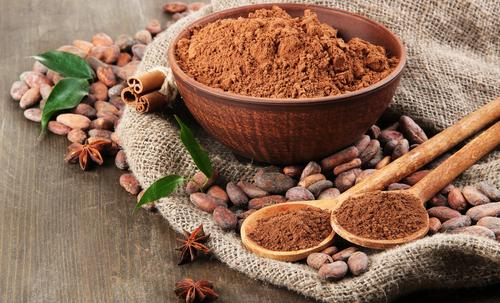Chocolate's Flavanols May Reverse Age-Related Memory Loss, But It Will Take A Lot More Than You Can Eat

If there weren’t enough reasons to eat chocolate already, here’s one more: Recent research suggests that the naturally occurring flavanols in cocoa reverse age-related memory loss in healthy older adults. The study, led by scientists at Columbia University Medical Center and Mars, Inc., was published Sunday in the journal Nature Neuroscience.
While forgetfulness is a reality of aging, it shouldn't be confused with the more debilitating dementia or Alzheimer's disease. Age-related memory loss is experienced by more than 40 percent of people over age 65. It starts in early adulthood, but its effects become more pronounced as age increases. As a result, a person begins to forget details from conversations they might have had the prior year, the names of acquaintances, or other random things. Meanwhile, dementia is more serious, causing destruction in the brain's components, causing memory to fail when it comes to more recent things, and even family names and events.
Age-related memory loss has been associated with a specific part of the brain called the dentate gyrus, which is located in the hippocampus, and is responsible for the formation of new memories. According to the researchers, the study shows that age-related memory loss starts from this region of the brain, and that dietary intervention, with chocolate, may reverse it. Senior research Scott A. Small and his team tested this, specifically with the flavanols in cocoa.
Flavanols are bioactive compounds found naturally in vegetables and fruits. They're also found in abundance in green tea, and have been found to be beneficial to human health. Earlier research has found that cocoa flavanols have the potential to help maintain healthy brain function, and in mouse experiments, researchers have found they improve neuronal connections in the dentate gyrus.
While cocoa's flavanols have numerous health benefits, what we get in our regular cup of hot chocolate may be a watered-down version as most flavanols get removed from cocoa beans during processing. To maintain the flavanol levels in cocoa plants, chocolate company Mars created a cocoa-flavanol test drink prepared specifically for research purposes. They then gave it to 30 healthy volunteers ages 50 to 69 in two different doses: a high dose contained 900 milligrams of flavanols while a low dose contained 10 milligrams. For three months, participants consumed the drink daily.
Brain imaging and memory tests conducted before and after the diet showed surprising results. "When we imaged our research subjects' brains, we found noticeable improvements in the function of the dentate gyrus in those who consumed the high-cocoa-flavanol drink," lead author Adam M. Brickman said in a statement.
The high-flavanol diet group performed exceedingly well in the memory tests. A participant who had the memory of a typical 60-year-old at the beginning of the study had the memory of a 30- to 40-year-old at three months, Small said. But he also cautioned that these experiments do not mean chocolate should be consumed without control, because a person may still not reach the same levels of flavanol used in the experiments. Instead, younger people should boost their memory with exercise. Previous studies have shown a correlation between physical activity and a better functioning dentate gyrus, the researchers said.
Source: Yeung L, Suzuki W, Schroeter H, Wall M, Small S, Brickman A. Enhancing dentate gyrus function with dietary flavanols improves cognition in older adults. Nature Neuroscience. 2014.
Published by Medicaldaily.com



























